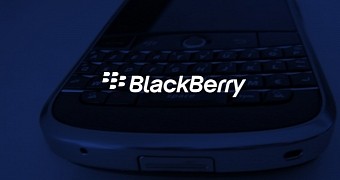BlackBerry CEO John Chen took some time out of his busy daily schedule to pen a carefully worded blog post explaining the "lawful access" to its global decryption key granted to Canadian police.
The scandal that hit BlackBerry at the end of last week has its roots in a murder case from 2011, when Canada's Royal Canadian Mounted Police (RCMP) requested and got access to a BlackBerry global decryption key in order to decrypt messages from the subsequent investigation.
Canadian prosecutors tried to hide this detail from the public and asked the judge to seal the case's technical details. After privacy groups sued the Canadian government, Canada's Supreme Court ordered the prosecution to unseal the documents, which proved BlackBerry's collaboration with local law enforcement.
BlackBerry CEO doesn't see anything wrong in the company's actions
Regarding the accusations from privacy groups and global media of BlackBerry being complicit to government surveillance, BlackBerry's CEO says that this is not true.
“ When it comes to doing the right thing in difficult situations, BlackBerry’s guiding principle has been to do what is right for the citizenry, within legal and ethical boundaries. We have long been clear in our stance that tech companies as good corporate citizens should comply with reasonable lawful access requests. I have stated before that we are indeed in a dark place when companies put their reputations above the greater good. ”
Mr. Chen's point is that company should be willing to collaborate with law enforcement when this is the case, and for legitimate investigations. When this is not the case, and requests are only forwarded to access data without a legitimate reason, and only for surveillance, this is where companies should draw the line.Mr. Chen then goes on to remind everyone that, only a few months before, his company bravely stood its ground, even announcing its exit from the Pakistani market, after receiving unwarranted government requests for access to BlackBerry Enterprise Server (BES) email and messaging content.
What Mr. Chen didn't touch upon was the fact that BlackBerry allowed Canadian police to keep a copy of the global decryption key on its servers, instead of having the authorities come to the company with data they needed unlocked.
Something like this exposes the company to having its encrypted communications revealed in a data leak if the decryption key is ever leaked or stolen. We won't even discuss the subject of government abuse if the police decides to use this key for anything outside warranted investigations.

 14 DAY TRIAL //
14 DAY TRIAL //